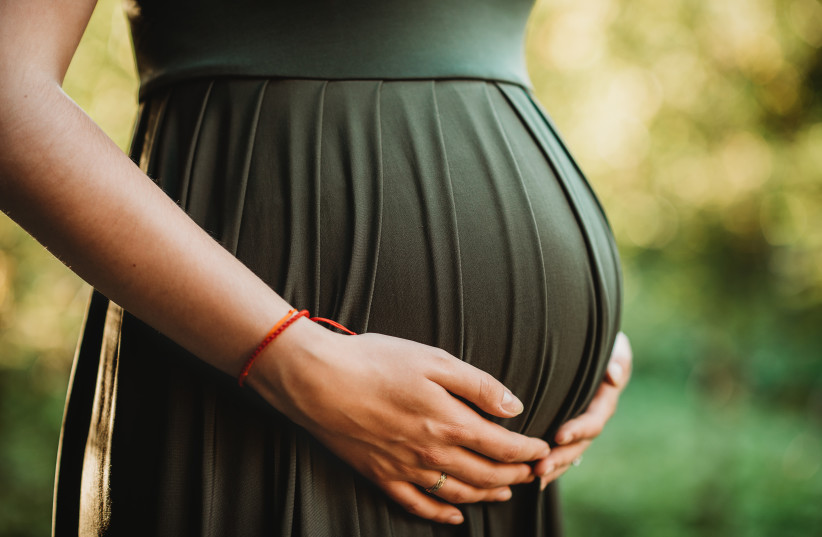Babies born of mothers who have been vaccinated against COVID-19 have a higher antibody count than babies born of unvaccinated mothers - a new Massachusets General Hospital (MGH) study published on Monday has found.
Additionally, a study which is of increased importance amid a National Institute of Health USA (NIH) discovery, found that mother’s with moderate to severe infection were more likely to have pregnancy complications – such as a cesarean (C-section) delivery, premature delivery, serious illness from hypertensive disorders of pregnancy, postpartum hemorrhage or even death during labor.
The peer-reviewed MGH study, which was published in The Journal of the American Medical Association (JAMA), showed that individuals vaccinated with two doses of an mRNA vaccine (or infected with COVID-19) gave birth to infants with higher antibody counts.
After two months, 98% of the infants born to vaccinated mothers had detectable levels of the protective Immunoglobulin G (IgG) – the most common antibody found in blood – and 57% still had detectable IgG after six months. Just 8% (1 of 12) of the babies born to infected mothers maintained antibodies after six months of their birth.
The NIH study, which included more than 13,000 pregnant individuals from 17 US hospitals – approximately 2,400 of whom were infected with COVID-19 – further highlighted the importance of getting vaccinated, particularly among expecting mothers. Patients with moderate to severe COVID-19 were more likely to deliver their baby by C-section (45.4 vs 32.4%) or give birth prematurely (26.9 vs 14.1%) compared to uninfected patients. They were also twice as likely to suffer fetal or newborn death (3.5 vs 1.8%).
“The findings underscore the need for women of child-bearing age and pregnant individuals to be vaccinated and to take other precautions against becoming infected with SARS-CoV-2,” said Diana Bianchi, the director of NIH’s Eunice Kennedy Shriver National Institute of Child Health and Human Development (NICHD), which funded the study. “This is the best way to protect pregnant women and their babies.”

“Pregnant women are at extremely high risk for serious complications from COVID,” says Galit Alter, a member of the Ragon Institute of MGH, MIT and Harvard and co-senior author of the MGH study. “And given the lag in the development of COVID-19 vaccines for infants, this data should motivate mothers to get vaccinated and even boosted during pregnancy to empower their babies’ defenses against COVID.”
Unlike the comprehensive NIH study, the MGH study could only analyze 49 newborns, as delays in follow-up with the infected group due to participants’ availability and COVID-19 surges in Boston made the study difficult to complete.
“While it’s still unclear just how high the titer needs to be to completely protect an infant from COVID, we know anti-spike IgG levels correlate with protection from serious illness,” says Andrea Edlow, director of the Edlow Lab in the Vincent Center for Reproductive Biology and co-senior author of the publication. “The durability of the antibody response here shows vaccination not only provides lasting protection for mothers but also antibodies that persist in a majority of infants to at least six months of age.”
